
Kód: 04529963
Preservation Versus the People?
Autor Matthew Humphrey
Why should any society take the decision to devote scarce resources, as a matter of public policy, to preserving natural objects? This is one of the questions considered in the field of environmental ethics, and the thinking that ... celý popis
- Jazyk:
 Angličtina
Angličtina - Vazba: Pevná
- Počet stran: 228
Nakladatelství: Oxford University Press, 2002
- Více informací o knize

Mohlo by se vám také líbit
-

Spoken Here
494 Kč -

Classic Maya
925 Kč -

Shuttle Story
309 Kč -

Affective Turn
821 Kč -

Conflict of Interpretations
1429 Kč
Dárkový poukaz: Radost zaručena
- Darujte poukaz v libovolné hodnotě a my se postaráme o zbytek.
- Poukaz se vztahuje na celou naši nabídku.
- Elektronický poukaz vytisknete z e-mailu a můžete ihned darovat.
- Platnost poukazu je 12 měsíců od data vystavení.
Více informací o knize Preservation Versus the People?
Nákupem získáte 224 bodů
 Anotace knihy
Anotace knihy
Why should any society take the decision to devote scarce resources, as a matter of public policy, to preserving natural objects? This is one of the questions considered in the field of environmental ethics, and the thinking that has taken place in this discipline has been dominated by the 'ecocentric-anthropocentric' distinction. Answers focus on either 'intrinsic values in nature', or on the human welfare benefits that will accrue from preservationist policies. These two answers are generally taken to be both mutually exclusive and collectively exhaustive. Ecocentric writers believe that their preferred environmental ethic transcends anthropocentrism, whilst those who cleave to a more 'ecological humanist' position, view the turn to ecocentrism as at best an unnecessary diversion or at worst as a thinly disguised expression of misanthropy. This book looks afresh at the question of justifying nature preservation as public policy and challenges the dominant ecocentric-anthropocentric dichotomy. It undertakes a detailed analysis of the ontology and ethics of ecocentrism, of social ecology - as a self-proclaimed new-humanist' form of ecological ethics - and of eco-Marxism - an example of an ecological philosophy that claims to 'transcend' the ecocentric-anthropocentric divide. This shows that there is an 'embedded humanism' within ecocentrism that provides the resources to move beyond the ecocentric-anthropocentric dichotomy. The analysis also shows, however, that this dichotomised framework distorts the understanding of substantive moral positions in the debate that has taken place between thinkers from different ecological schools. The failure of ecocentrism lies not in its substantive moral position, but in its attempt to render the justification for preservationism non-contingent. The insights drawn from the analytical sections are pulled together in the final chapter in order to suggest a basis for justifying nature preservation as a public policy that escapes the sterile, distorting ecocentric-anthropocentric dichotomy. The author claims that an argument from 'strong irreplaceability', compatible with both human-centered and nature-centered concerns, provides the strongest grounds for the justification of a public policy of nature preservation.
 Parametry knihy
Parametry knihy
Zařazení knihy Knihy v angličtině Humanities Philosophy Ethics & moral philosophy
2243 Kč
- Plný název: Preservation Versus the People?
- Podnázev: Nature, Humanity, and Political Philosophy
- Autor: Matthew Humphrey
- Jazyk:
 Angličtina
Angličtina - Vazba: Pevná
- Počet stran: 228
- EAN: 9780199242672
- ISBN: 0199242674
- ID: 04529963
- Nakladatelství: Oxford University Press
- Hmotnost: 470 g
- Rozměry: 243 × 166 × 20 mm
- Datum vydání: 15. August 2002
Oblíbené z jiného soudku
-
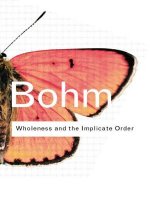
Wholeness and the Implicate Order
559 Kč -

Moral Landscape
306 Kč -
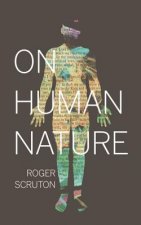
On Human Nature
360 Kč -

Beyond Good and Evil
306 Kč -

Lying
344 Kč -

Beyond Good and Evil
223 Kč -

Skin in the Game
306 Kč -

The Genealogy of Morals
170 Kč -

On Bullshit
243 Kč -

After Virtue
654 Kč -

Doing Good Better
306 Kč -

Civil Disobedience and Other Essays
90 Kč -

Ethics
366 Kč -

Parmenides
261 Kč -
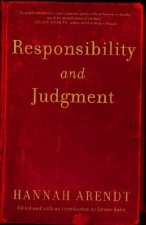
Responsibility and Judgment
414 Kč -
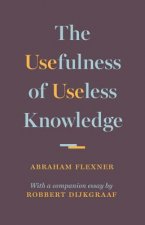
Usefulness of Useless Knowledge
253 Kč -
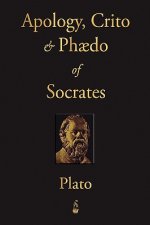
Apology, Crito and Phaedo of Socrates
261 Kč -

Matters of Care
871 Kč -

Beyond Good and Evil
382 Kč -

On Friendship
691 Kč -

Principia Ethica
289 Kč -

Freedom as a Value
769 Kč -

Integrity
567 Kč -

Meditations
252 Kč -
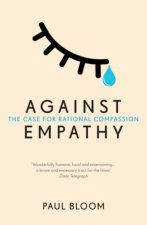
Against Empathy
306 Kč -

Theory of Moral Sentiments
393 Kč -

What We Owe to Each Other
811 Kč -
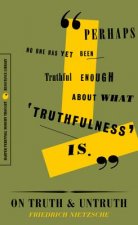
On Truth and Untruth
249 Kč -

Better Never to Have Been
1056 Kč -

Reasons and Persons
847 Kč -

Inventing the Individual
360 Kč -

Beyond Freedom and Dignity
575 Kč -
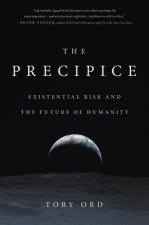
Precipice
617 Kč -

A Confession
196 Kč -

What Money Can't Buy
286 Kč -

Will to Power
251 Kč -

Ethics in the Real World
501 Kč -

Justice
364 Kč -
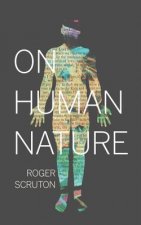
On Human Nature
706 Kč -

Protagoras
732 Kč -

Oxford Handbook of Business Ethics
1960 Kč -

Human Life, Action and Ethics
873 Kč -

Getting Back into Place, Second Edition
876 Kč -
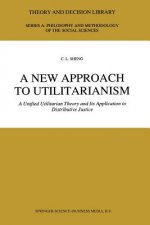
New Approach to Utilitarianism
1681 Kč -

Evidential Argument from Evil
810 Kč -

Oxford Studies in Metaethics 11
1458 Kč -

Why It's OK to Want to Be Rich
708 Kč -
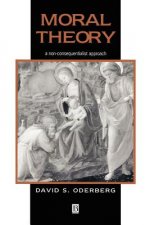
Moral Theory - A Non-Consequentialist Approach
1938 Kč -

Radical Sacrifice
440 Kč
Osobní odběr Praha, Brno a 12903 dalších
Copyright ©2008-24 nejlevnejsi-knihy.cz Všechna práva vyhrazenaSoukromíCookies



 Vrácení do měsíce
Vrácení do měsíce 571 999 099 (8-15.30h)
571 999 099 (8-15.30h)